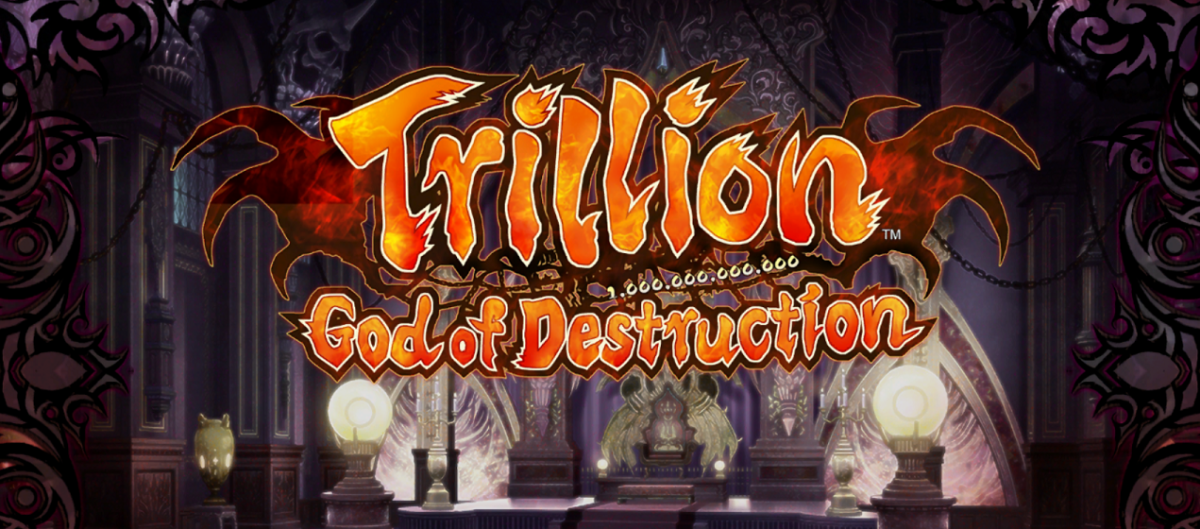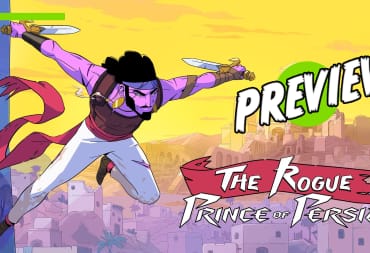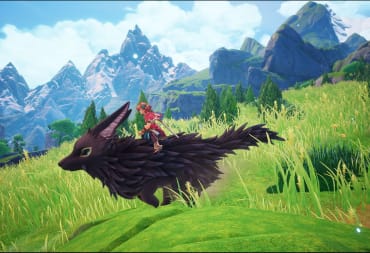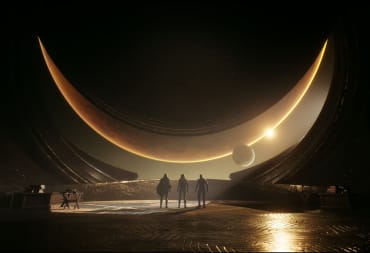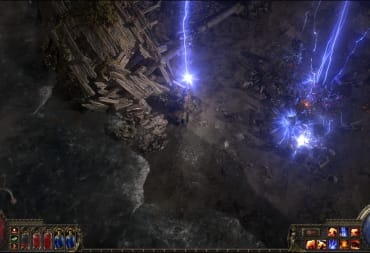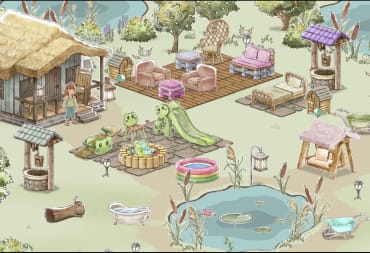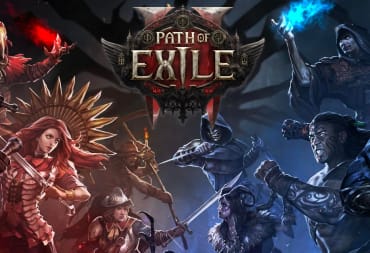Compile Hearts is best known for their work with Idea Factory on titles such as the Neptunia franchise and Fairy Fencer F. Here they attempt to conjure an entirely new IP in Trillion from the ether that mixes many genres (RPG, roguelike, and raising sim) while excelling at none of them. In Trillion you are tasked with defeating the titular god of destruction before he can consume the core of the world and destroy everything connected to it. While this plot seems to set up an epic battle between your overlord companions and the gigantic god of destruction, you instead are treated to an endless series of menus, number crunching, and characters with all the development of a cardboard cutout.
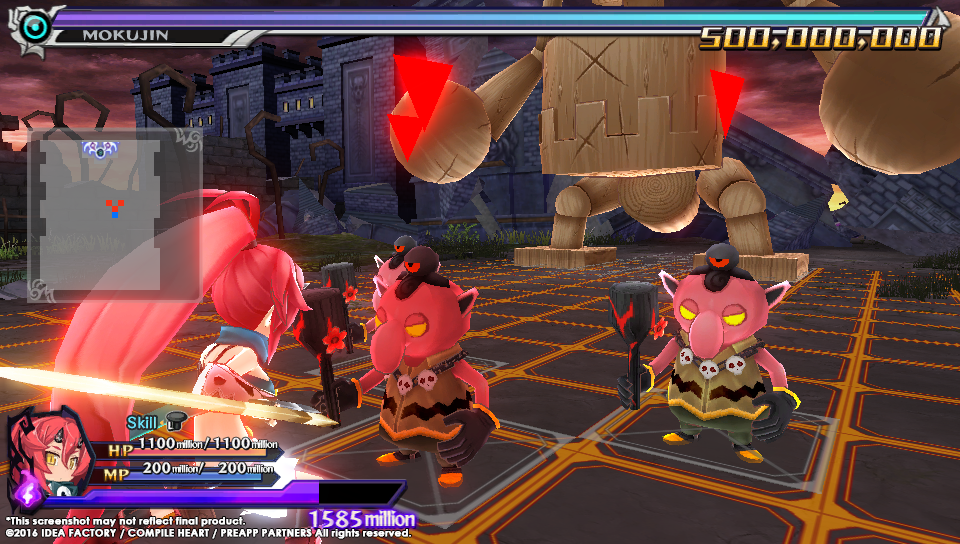
The game is rather repetitive at points, making the player use training to get points to raise a character's stats (why the training doesn't directly raise relevant stats is beyond me) then you must distribute these points to raise stats. You can also gain points by challenging the Valley of Swords, a dungeon filled with monsters and traps, or through random events that happen between training, but neither really breaks up the tedium of number crunching. Finally, after a certain amount of time has passed, you must fight Mokujin, a wooden copy of Trillion, to see how far your training has taken you, while positive results lead to more points to boost stats and poor conformance yields less.
There is a bit of romance going on between the main character and his various cute female underlings. but the fact that you get to know them through events triggered by giving them specific items, which can only be had at random from a gumball machine-like device, and using valuable training time to go out with them, this portion of the game undercuts every other element of the game at moments. Making matters worse, the player actually has to take part in this light dating sim gameplay as the higher the Affection rating a girl as for our hero, that Affection actually becomes something of a buffer on the battlefield that lets protects you from attacks and allows for more spell and technique use before actually touching your actual HP and MP. This is nice and all, but it is quite an awkward way to shoehorn visual novel elements into an RPG.
The thing about these fights is that they never really change. No matter what stage of the game you're at, Mokujin and Trillion fight with the same general tactics, special attacks, and summoned minions. For what is made up to be the central conflict in the game, these fights simply fall short of feeling important or as epic as setting off to fight a world-devouring super-demon should. On top of this, Trillion's battle system is more akin to games like Shiren the Wanderer or any game with a mysterious dungeon in its title than, say Final Fantasy. The battlefield is divided into squares and moving to a new square, attacking, using an item, and most other actions take up one turn. Each enemy then in turn moves and the cycle repeats until the boss or your chosen hero dies. This is a problem because fights end up becoming nothing more than making sure you're out of range of any ranged or area of effect attacks while hacking away with your most powerful special attacks and healing any damage you may have taken. This also makes it extremely easy to die as it is entirely possibly to be swarmed by drones while trying to move due to the one to one movement system. All these factors lend another element of repetitiveness to Trillion's already repetitive gameplay.
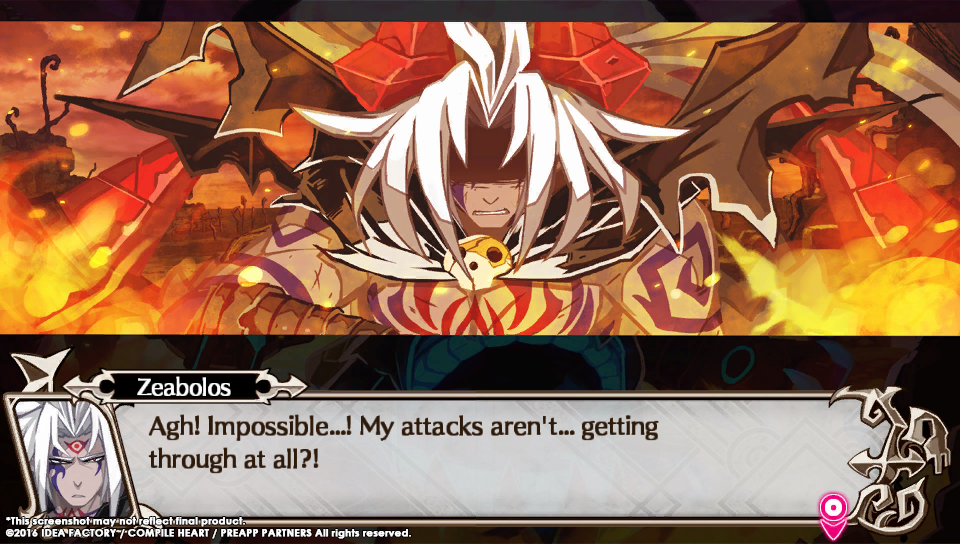
That is pretty much the entirety of Trillion, you grind for status, go to the valley of swords, fight Trillion or Mokujin, then repeat until your chosen character dies or you clear the game. Trillion isn't a terrible game, it's just one that suffers from a serious case of "Too many cooks". If it had stuck to its battle system, or just played as a raising sim, such as the Princess Maker games do, it could have been a good game. But as is there is far too little going on in Trillion to recommend it to anyone but those who dig the game's Disgaea-esque art style or enjoy the bizarre combination of genres that it has offers.
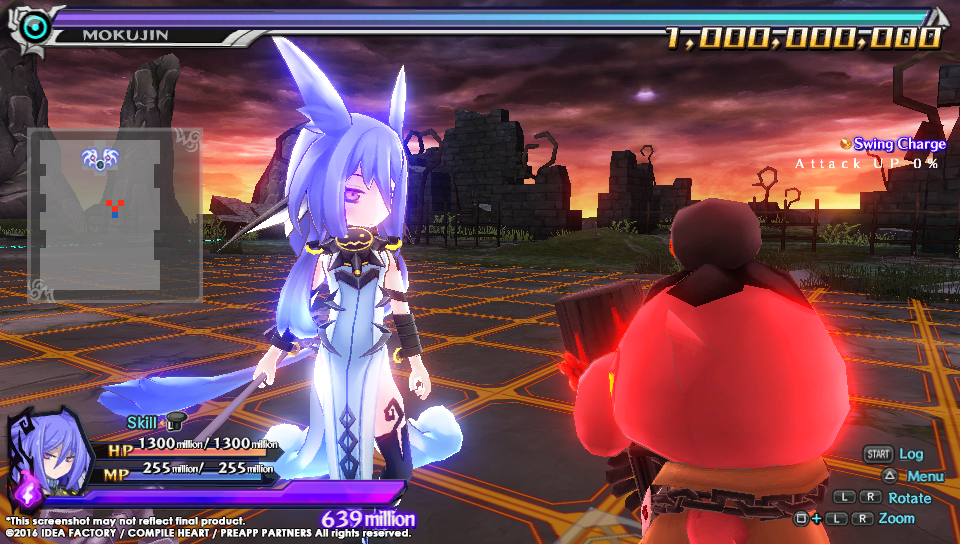
As a port, however, Trillion is pretty good. The game moves smoothly even on my mid-range laptop and never lagged or crashed during my playtime, which was a problem I had with the PC version of some of the Neptunia games. In addition, the PC port comes with all of the console version's DLC, which gives you several useful items, a powerful helper demon, and a series of events that call the girls from Neptunia game's to Trillion's world to unlock various events and give the player powerful equipment.
In all, Trillion is a pretty repetitive game that really only kept me going with its interesting looking characters and strange art style. However, the staff at Compile Hearts really should have made up their minds what kind game they wanted to make. Had this been a strict visual novel, the art and characters might have been enough to carry it, and the battle system used here, while a bit busted, would have been fine in a dungeon crawler. By smashing them all together, you end up with a pretty mess that had the potential to be great but tried to juggle too many balls to really be enjoyable in the end.
Trillion God of Destruction was played on PC via Steam with a code provided by the publisher. It is also available on PlayStation Vita.
Previews you can trust: To ensure you're getting a fair, accurate, and informed review, our experienced team spends a significant amount of time on everything we preview. Read more about how we review games and products.
Have a tip, or want to point out something we missed? Leave a Comment or e-mail us at tips@techraptor.net
